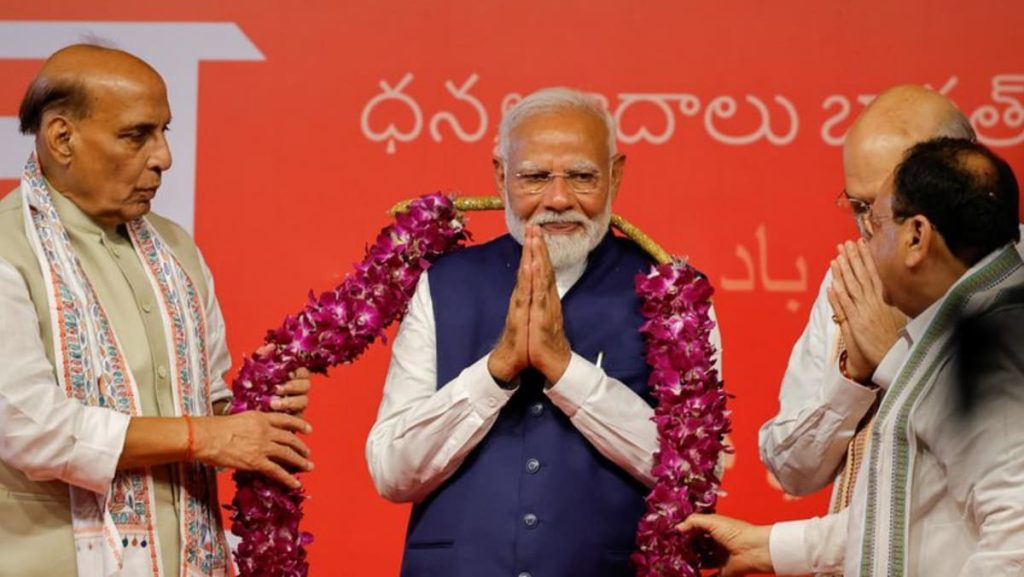The Telugu Desam Party (TDP) and Janata Dal (United) (JDU) are set to play a significant role in the coalition government, receiving a substantial amount of power. Both parties won a total of 28 seats each, earning them the title of “kingmakers” in the local media. While these parties have been known to defect between political sides, their influence presents a challenge for Prime Minister Modi on issues such as religious nationalism. Despite this, their presence is not expected to hinder the government’s ability to address economic, foreign policy, and domestic political challenges.
Dr Dossani, a professor of policy analysis, believes that the TDP and JDU will have specific demands as part of their involvement in the coalition government. These demands may involve seeking key ministries and important positions within the administration. Associate Professor Ananya Vajpeyi, a fellow at the Centre for the Study of Developing Societies, highlights the importance of the BJP and Modi reaching an understanding with these influential parties. The allocation of ministries and positions will play a crucial role in determining the success of the coalition government and how it is perceived by the public and external observers.
One key issue that both the TDP and JDU are likely to oppose is religious nationalism, which is associated with the BJP and Modi’s policies. Despite their differences on this front, the coalition government is expected to continue addressing other pressing issues, including economic reforms, foreign policy initiatives, and internal political challenges. The ability of the BJP and Modi to navigate these differences and accommodate the demands of the TDP and JDU will be essential in maintaining stability and unity within the government.
The TDP and JDU’s status as kingmakers underscores their pivotal role in shaping the direction of the coalition government. As parties with significant influence, they are in a position to push for their interests and priorities in negotiations with the BJP and Modi. The allocation of ministries and key positions will likely be a crucial point of contention, as these parties seek to secure their positions and exert their influence on policy decisions. How these negotiations unfold will determine the dynamics of the coalition government and its ability to effectively govern.
Despite the challenges posed by differing priorities and ideologies, the TDP and JDU’s involvement in the coalition government represents an opportunity for collaboration and compromise. As key players in the political landscape, these parties have the potential to drive positive change and contribute to the government’s efforts in addressing various issues. By engaging in constructive dialogue and finding common ground, the BJP and Modi can harness the strengths of these parties to build a stronger and more inclusive government that serves the interests of all stakeholders.
In conclusion, the TDP and JDU’s role as kingmakers in the coalition government presents both opportunities and challenges for the BJP and Modi. By navigating their demands and finding common ground, the government can benefit from the diverse perspectives and priorities that these parties bring to the table. The success of the coalition government will depend on the ability to strike a balance between competing interests and work towards a shared vision for governance. As the political landscape continues to evolve, the cooperation between these parties will be instrumental in shaping the future of Indian politics and policy-making.


